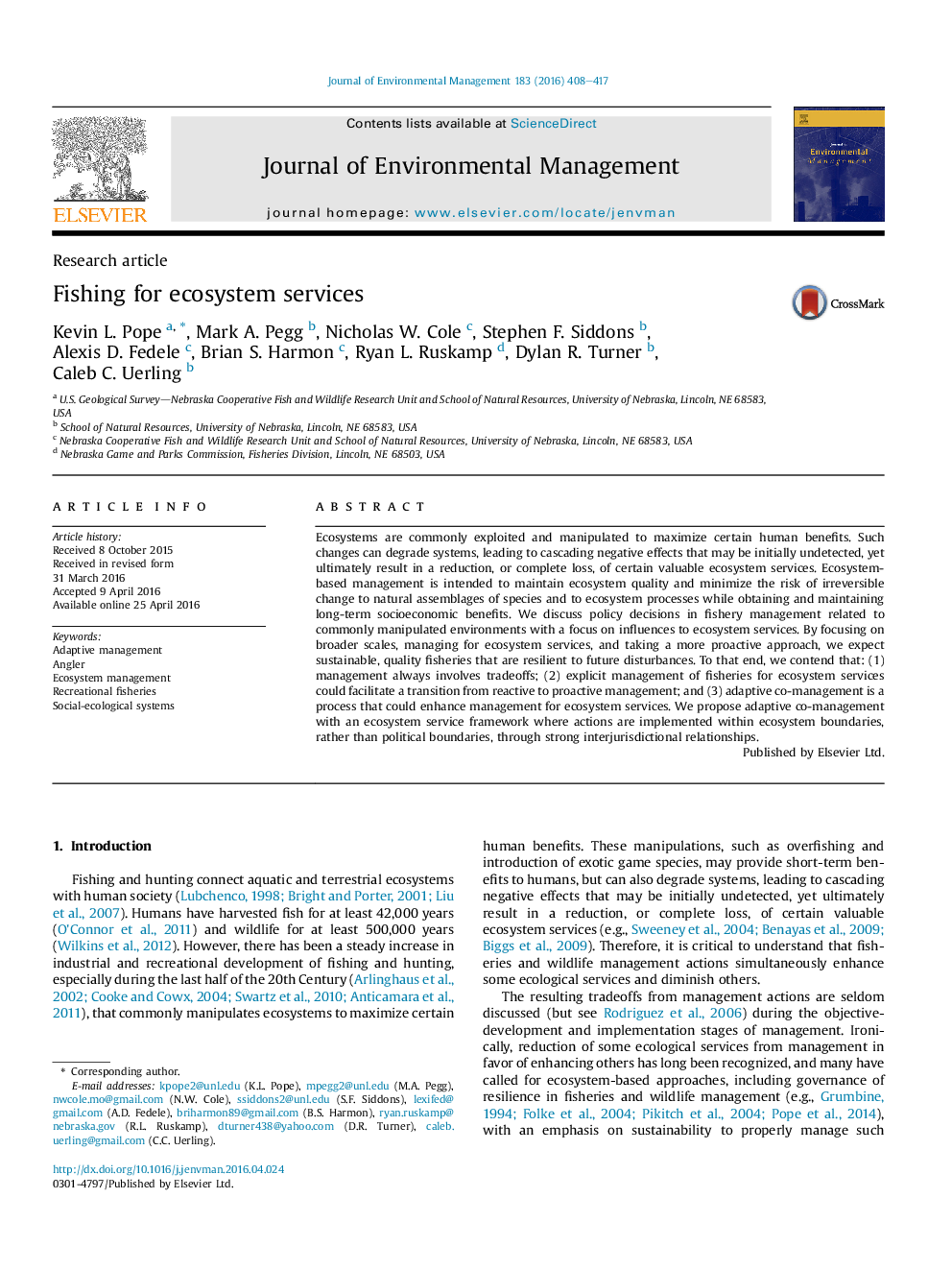| Article ID | Journal | Published Year | Pages | File Type |
|---|---|---|---|---|
| 5117329 | Journal of Environmental Management | 2016 | 10 Pages |
•Fisheries management is generally not couched in terms of ecosystem services.•Even so, fisheries management always involves tradeoffs in ecosystem services.•Explicitly managing for ecosystem services could facilitate proactive management.•Adaptive co-management could enhance fisheries management for ecosystem services.
Ecosystems are commonly exploited and manipulated to maximize certain human benefits. Such changes can degrade systems, leading to cascading negative effects that may be initially undetected, yet ultimately result in a reduction, or complete loss, of certain valuable ecosystem services. Ecosystem-based management is intended to maintain ecosystem quality and minimize the risk of irreversible change to natural assemblages of species and to ecosystem processes while obtaining and maintaining long-term socioeconomic benefits. We discuss policy decisions in fishery management related to commonly manipulated environments with a focus on influences to ecosystem services. By focusing on broader scales, managing for ecosystem services, and taking a more proactive approach, we expect sustainable, quality fisheries that are resilient to future disturbances. To that end, we contend that: (1) management always involves tradeoffs; (2) explicit management of fisheries for ecosystem services could facilitate a transition from reactive to proactive management; and (3) adaptive co-management is a process that could enhance management for ecosystem services. We propose adaptive co-management with an ecosystem service framework where actions are implemented within ecosystem boundaries, rather than political boundaries, through strong interjurisdictional relationships.
